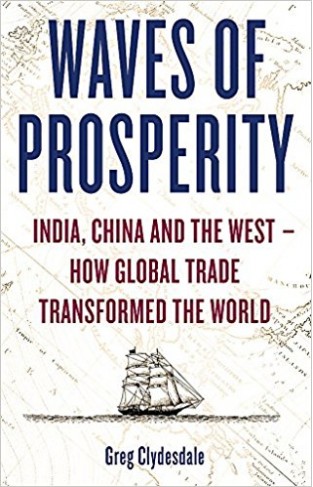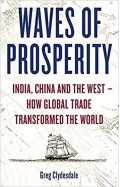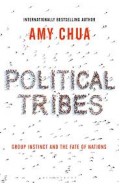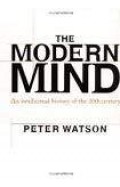Waves of Prosperity: India, China and the West – How Global Trade Transformed The World
By: Greg Clydesdale
-
Rs 1,015.75
- Rs 1,195.00
- 15%
You save Rs 179.25.
Due to constant currency fluctuation, prices are subject to change with or without notice.
When the Genoese merchant, Marco Polo, first arrived in Dynastic China he was faced with a society far advanced of anything he had encountered in Europe. The ports were filled with commodities from all over the eastern world, while new technology was driving the economy forward. It would take another 400 years before European trade in the Atlantic eclipsed the Pacific markets.
From China's phenomenally successful Sung dynasty (c. AD 960-1279), Cargoes reveals the power of the Mughals merchants of Gujarat, who built an empire so powerful that, even in the 17th century, the richest man in the world was a Gujarat trader. It was not until the opening up of the spice routes and the discovery of South American gold that medieval Iberia came to the fore. It was only then that the Atlantic Empire of the west came to dominate world trade, first the Dutch Republic in the seventeenth century, then the British Empire in the age of the Industrial Revolution, American supremacy in the twentieth century, and the development of post-war Japan.
Along the way Greg Clydesdale looks at the parallel lives and ideas of merchants and explorers, missionaries, kings, bankers and emperors. He shows how great trading nations rise on a wave of technological and financial innovation and how in that success lies the cause of their inevitable decline.
When the Genoese merchant, Marco Polo, first arrived in Dynastic China he was faced with a society far advanced of anything he had encountered in Europe. The ports were filled with commodities from all over the eastern world, while new technology was driving the economy forward. It would take another 400 years before European trade in the Atlantic eclipsed the Pacific markets.
From China's phenomenally successful Sung dynasty (c. AD 960-1279), Cargoes reveals the power of the Mughals merchants of Gujarat, who built an empire so powerful that, even in the 17th century, the richest man in the world was a Gujarat trader. It was not until the opening up of the spice routes and the discovery of South American gold that medieval Iberia came to the fore. It was only then that the Atlantic Empire of the west came to dominate world trade, first the Dutch Republic in the seventeenth century, then the British Empire in the age of the Industrial Revolution, American supremacy in the twentieth century, and the development of post-war Japan.
Along the way Greg Clydesdale looks at the parallel lives and ideas of merchants and explorers, missionaries, kings, bankers and emperors. He shows how great trading nations rise on a wave of technological and financial innovation and how in that success lies the cause of their inevitable decline.
Waves of Prosperity: India, China and the West – How Global Trade Transformed The World
By: Greg Clydesdale
Rs 1,015.75 Rs 1,195.00 Ex Tax :Rs 1,015.75
Zubin Mehta: A Musical Journey (An Authorized Biography)
By: VOID - Bakhtiar K. Dadabhoy
Rs 892.50 Rs 1,050.00 Ex Tax :Rs 892.50
The Origins of Political Order From Prehuman Times to the French RevolutioN
By: Francis Fukuyama
Rs 4,045.50 Rs 4,495.00 Ex Tax :Rs 4,045.50
Manning Up: How the Rise of Women Has Turned Men into Boys
By: Kay Hymowitz
Rs 845.75 Rs 995.00 Ex Tax :Rs 845.75
The Obama Syndrome: Surrender At Home War Abroad
By: Tariq Ali
Rs 1,100.75 Rs 1,295.00 Ex Tax :Rs 1,100.75
The Quest For Meaning: Developing A Philosophy Of Pluralism
By: Tariq Ramadan
Rs 1,185.75 Rs 1,395.00 Ex Tax :Rs 1,185.75
The Pakistan US Conundrum Jihadists The Military And The People The Struggle For Control
By: Yunas Samad
Rs 1,185.75 Rs 1,395.00 Ex Tax :Rs 1,185.75
An Enemy We Created: The Myth Of The Taliban Al Qaeda Merger In Afghanistan 19702010
By: Alex Strick van Linschoten
Rs 4,197.50 Rs 8,395.00 Ex Tax :Rs 4,197.50
WikiLeaks: Inside Julian Assanges War on Secrecy
By: David Leigh & Luke Harding
Rs 637.50 Rs 850.00 Ex Tax :Rs 637.50
Cryptocurrency (WIRED guides): How Digital Money Could Transform Finance
By: Gian Volpicelli
Rs 2,245.50 Rs 2,495.00 Ex Tax :Rs 2,245.50
The Modern Mind An Intellectual History of the 20th Century
By: Peter Watson
Rs 3,565.75 Rs 4,195.00 Ex Tax :Rs 3,565.75
Zubin Mehta: A Musical Journey (An Authorized Biography)
By: VOID - Bakhtiar K. Dadabhoy
Rs 892.50 Rs 1,050.00 Ex Tax :Rs 892.50
Waves of Prosperity: India, China and the West – How Global Trade Transformed The World
By: Greg Clydesdale
Rs 1,015.75 Rs 1,195.00 Ex Tax :Rs 1,015.75














-120x187.jpg?q6)







-120x187.jpg?q6)



-120x187.jpg?q6)





/book group/DINOSAUR-120x187.jpg?q6)






